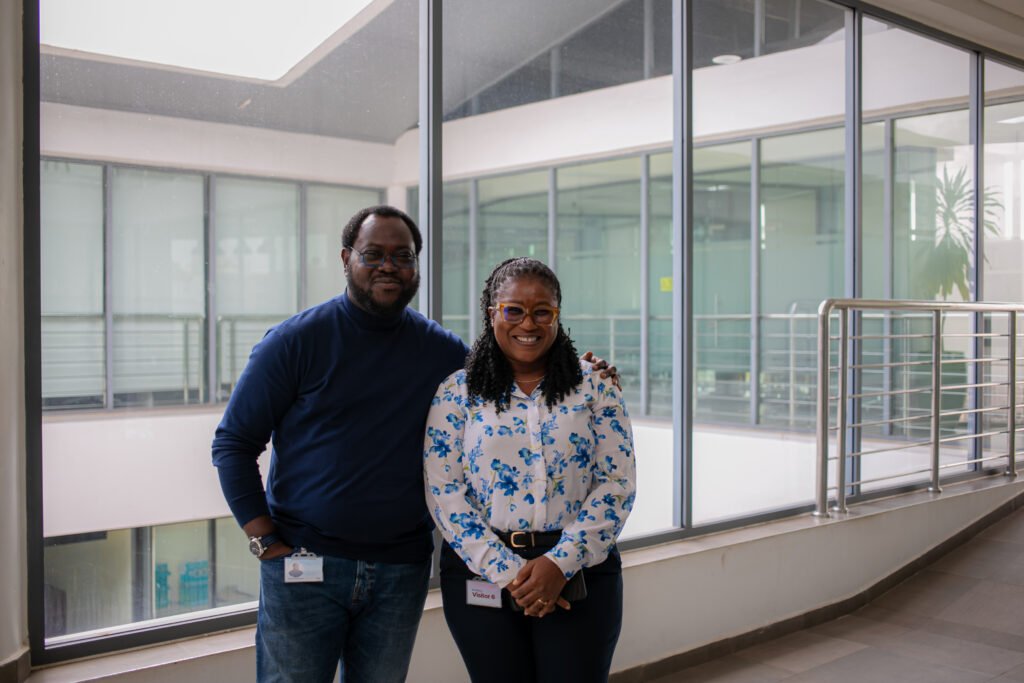Business
iTWire – How Australian businesses can win at AI
I often remind our team and clients that AI isn’t something we’re planning for anymore. AI is already here, and it is reshaping how businesses operate and compete. At Avanade, we’re seeing this shift play out every day. Our latest Avanade Trendlines: AI Value Report 2025 shows that majority (86%) of Australian businesses plan to boost their budgets for generative AI by up to 50% in 2025.
The intent is clear – businesses want to stay competitive and build a workforce that’s ready for what’s next. Despite the momentum, Australia risks falling behind. Not due to a lack of ambition, but because the right fundamentals are not in place. ServiceNow’s latest AI Maturity Index reflects a decline in Australia’s AI readiness, with our score dropping from 46 to 35 (out of 100).
Four in five local leaders fear losing their edge without faster adoption. Many are aiming for up to four times ROI in the next 12 months but are being held back by challenges in data governance, workforce readiness, and legacy systems.
So, where’s the disconnect?
Increased investment alone won’t guarantee results. The real difference will be leadership – knowing which foundational moves to make and how to shift from pilots to long-term, enterprise-wide value.
|
|
Start with what matters: Build a digital core that can scale
AI can’t deliver impact if it’s built on outdated, legacy infrastructure. Australian business leaders know this well – 94% say they are fast-tracking plans to modernise legacy systems.
This is where success in AI starts to build momentum – with modern, secure, and cloud-native platforms that have the power to flex, adapt, and scale as the business grows.
Simplifying data systems, improving performance, and laying the foundation for scalable AI integration isn’t just a tech decision; it’s a strategic one.
Make trustable data your superpower
AI is only as good as the data behind it. And when you’re trying to move fast and deliver real value, poor data quality can quickly derail even the best intentions.
Two in three Australian business leaders say data quality and governance are holding back their AI efforts. That should be a wake-up call. Without clean, accurate, and well-governed data, outcomes can become unreliable, biased, or risky, eroding trust across the business.
The good news? Businesses are acting. 85% have implemented or are rolling out modern data platforms, and 90% are developing responsible AI guidelines to govern how data is used and protected.
We’ve seen how transformative this can be. Getting your data foundation right doesn’t just unlock better insights – it leads to smarter, faster, and more ethical decisions.
Embed security and trust at the core
As AI becomes more embedded in how we work, it’s bringing with it a new set of risks, from how we manage sensitive data to concerns around algorithmic bias and cybersecurity threats. Security and trust aren’t just technical considerations; they’re essential foundations for using AI responsibly and at scale.
92% of Australian leaders said protecting sensitive data is one of their top concerns – and it’s easy to see why. The pressure to move fast can sometimes lead to shortcuts, but without a clear security strategy, the risks compound quickly.
That’s why security needs to be built in from the start – not bolted on later. At Avanade, we’re working with clients to embed protection into every layer of their AI strategy across infrastructure, data, workplace tools, and the models themselves. In many cases, AI is becoming part of the solution as well, helping detect threats earlier, automate responses, and strengthen overall cyber resilience.
The more trusted your AI is – by your people, your customers, and your partners – the more value it can unlock.
Invest in people, not just platforms
No AI strategy will succeed without your people. 77% of Australian mid-market organisations are increasing investment in AI training, while 76% are prioritising change management to help teams adapt as new tools emerge.
These are smart moves. Tools like Microsoft Copilot are changing how work gets done, but access alone isn’t enough. These tools demand fluency, not just functionality.
Rethinking work means helping employees build confidence, experiment safely, and find new ways to contribute. We’ve seen clients roll out Copilot in ways that complement – not disrupt – how their teams work. The result? More engaged people, faster decisions, and a stronger culture of innovation.
This is the AI leadership moment
Whether you’re leading a mid-sized business or a national enterprise, the role you play in shaping Australia’s economic future is significant – and AI will be a key differentiator for those looking to grow, adapt, and lead.
But success won’t come from ambition alone. It requires clear, deliberate decisions about modern infrastructure, trusted data, secure systems, empowered people, and where AI can deliver the most value. For many, that value won’t just be found in back-end efficiency, but in how AI enhances interactions, strengthens relationships, and builds trust, both internally and externally.
A vast majority (96%) of business leaders globally, including a similar majority here in Australia agree that AI will help deliver more personalised and meaningful experiences. These are the kinds of shifts that turn short-term gains into long-term advantage.
AI is no longer just a technology decision – it’s a leadership one. And the choices made over the next 12 months will shape not only how your business performs, but how it leads in the years to come.
Carla Ramchand, CEO, Avanade Australia
Business
Which Business Functions Are Delivering The Highest ROI From AI

AI ROI
Getty Images – Anton Petrus
The AI return on investment debate is largely over. Companies are no longer asking if it delivers value; they’re asking where it delivers the most and how to scale those gains across the business.
Cross-industry research from TAG Infosphere, supported by WitnessAI, examined 20 sectors and found a universal truth: everyone is projected to see a positive return from AI. The biggest wins are showing up in functions with rich, structured data and repeatable processes. By contrast, areas that rely heavily on human judgment and nuance are progressing more slowly.
Where AI Is Paying Off Fastest
The TAG Analyst Report, Ranking Industries by Their Expected Benefit from Artificial Intelligence (AI) Usage, listed data analysis as the top ROI-positive function, followed by manufacturing and customer service. All three share the same advantage: clear goals, plenty of data to train models, and outputs that can be measured in hard numbers.
- Data Analysis – Drives productivity gains, trims staffing needs over time, and reduces IT costs by replacing less efficient platforms.
- Manufacturing – Predictive maintenance, robotics, and automation that improve output and cut downtime.
- Customer Service – Chatbots, personalization, and smart routing that boost satisfaction while lowering labor requirements.
Lower-ranking functions, such as HR, still yield returns, just not as quickly. That’s less about AI’s capability and more about the nature of the work, which depends on empathy, negotiation, and situational judgment.
Why These Areas Lead
AI shines where inputs are consistent, data is plentiful, and the work can be done at scale. In data analysis, algorithms process massive datasets more efficiently and accurately than humans. In manufacturing, predictive models identify equipment issues before they escalate into costly failures. When it comes to customer service, human agents are freed up for more complex interactions with AI handling common requests instantly.
That doesn’t mean slower-moving industries should sit back and wait. The most effective approach is to invest first in areas that can produce measurable cost savings or new revenue within months, then expand into other functions as the organization builds confidence and skills.
How Leaders Are Using AI Today
According to a recent Prosper Insights & Analytics Survey, 50.2% of executives and 43.6% of business owners already use AI in their daily work
Prosper – Heard of Generative AI
Prosper Insights & Analytics
Top applications:
- Research and summarization
- Writing assistance
- Content Creation
Prosper – What You Use Generative AI For
Prosper Insights & Analytics
These activities line up neatly with high-ROI functions; they’re also relatively low-risk starting points.
The performance picture is more complex. IBM’s 2025 CEO Study found that only 25% of AI initiatives hit their expected ROI in the past three years, and just 16% have scaled enterprise wide. Yet confidence remains high: 85% of CEOs expect efficiency-focused AI investments to deliver positive ROI by 2027, and 77% expect the same for AI growth initiatives.
The Visibility Gap
Even leaders in organizations that have adopted AI lack insight into its actual application. Rick Caccia, CEO of WitnessAI, has seen the disconnect firsthand.
“Executives might think that blocking AI usage is a fine strategy for now, Caccia said, “but employees want to use these tools they’ve been reading about for years. In practice, employees are using anywhere from 2 to 5 times more AI apps than company leaders expect. That makes it impossible to measure what’s really driving value, and it means some of the biggest productivity gains and the risks never show up in official reports.”
Caccia points out that most risks aren’t deliberate. They come from people trying to work better and faster, but in doing so, they expose sensitive data or IP. His advice: enable AI use with the right safety rails instead of banning it outright.
AI as the Main Event
Some executives still treat AI as an add-on to existing tools rather than a core driver of business. Gil Spencer, CTO of WitnessAI, thinks that the mindset is already obsolete.
“The reality is that AI is the main attraction,” Spencer stated. “Pretty soon, you’re just going to tell your AI to research a topic and draft a document or presentation. Business models, development methods, and daily work have undergone fundamental shifts. Organizations that place AI at the center of their workflows will see returns that compound over time. Treat it as a peripheral tool, and you’ll miss out on the exponential ROI curve.”
That shift in thinking is key to unlocking the kind of compounding returns Spencer describes. AI woven into core processes has a multiplying effect; kept at the edges, its impact is incremental at best.
From Proof to Scale
Every sector in the TAG Infosphere and WitnessAI analysis is positioned to benefit from AI. The real differentiator will be how quickly leaders transition from proof of concept to scaled adoption in the areas that matter most. This involves selecting the right starting points, tracking the relevant metrics, and incorporating safety and governance into the plan from the outset.
The ROI conversation has moved on. Now it’s about ensuring the return is not just real, but also repeatable.
Business
Growing Intersections of AI, Automation, and Financial Services Will Drive Business Transformation

Mr. Chukwuma Nwanze is the MD/Chief Executive Officer of Credit Direct Finance Company Limited, one of Nigeria’s leading embedded finance companies. He joined the organisation in 2012 as Head of Strategy and Business Development, where he played a pivotal role in the development of the company’s first Loan Management System, marking the beginning of its digital transformation journey. Over the years, he has held various leadership positions, including Chief Finance Officer and Executive Director of Finance and Strategy.
In 2023, he was appointed MD/CEO, bringing over a decade of experience in financial structuring, reporting, and management. Under his leadership, Credit Direct has undergone a significant digital transformation, leveraging artificial intelligence and automation to enhance customer experience and operational efficiency. The company has introduced innovative products such as the Credit Direct Mobile App, CLARA (an AI-powered assistant), and the Buy Now, Pay Later solution, positioning itself as a digital-first financial technology company. Mr. Nwanze holds a Bachelor of Business Administration from Cambridge International College and is a Doctoral candidate in Business Administration at Edinburgh Business School, Heriot-Watt University. He speaks on his commitment to fostering a culture of innovation, excellence, and empathy within the organisation, aligning with Credit Direct’s mission to ensure access to financial solutions as a universal opportunity.
So, looking at FinTech in Nigeria, what trend do you foresee shaping the future of embedded finance and digital learning?
I believe FinTech is rapidly becoming a buzzword. In the next five years, I doubt we will even refer to them as FinTech companies, as every financial instrument will inherently be digitally specific. Every financial instrument will embody FinTech, driven by seamless Application Programming Interface (API)-led integrations where systems and platforms communicate effortlessly. We anticipate intelligent, swift, and astute decision-making as AI becomes deeply embedded across every facet of finance, fostering more inclusive lending.
This will enable on-the-spot credit decisions, irrespective of their complexity. The growth of embedded finance will be significant, with Credit Direct proudly leading this charge not only in Nigeria but across Africa. We foresee a surge as finance becomes seamlessly incorporated into everyday living. This transformation is set to unfold rapidly in the coming years. Furthermore, I anticipate substantial growth in financial inclusion, directly linked to the increasing smartphone penetration and internet accessibility in Nigeria. As the world becomes increasingly mobile, the FinTech space will witness considerable activity and innovation.
Since your appointment as MD/CEO in 2022, what have been the most transformative changes you have driven at Credit Direct?
I have been with Credit Direct for 13 years in total, including the decade prior to my CEO appointment. The transformative changes since my appointment are a continuation of the excellent work initiated by my predecessor and the dedicated team, a legacy I am immensely proud to have inherited and built upon. My primary responsibility has been to digitally transform Credit Direct, a mission that has yielded significant milestones over the past two and a half years.
Firstly, we have diversified significantly beyond traditional lending, now offering digital payments, retail investments, and widely available embedded finance solutions. Our all-in-one mobile app, launched earlier this year, already serves over 200,000 customers, and we are targeting one million users within the next few months. We have fundamentally reorganised as a digital-first business, ensuring all our verticals—lending, payments, and investment—are digitally centric. We operate as an essentially paperless organisation; one would be hard-pressed to find a printer here, reflecting our commitment to this aspiration. We have now integrated digital technology into every aspect.
Our customers can access credit in as little as two minutes today. For instance, individuals dialling *5120# receive funds instantly, while those utilising our WhatsApp channel gain access within minutes. Similarly, accessing credit via mobile or web is equally swift. Our ‘buy now, pay later’ solutions, for example, enable customers to purchase devices within seven minutes, allowing them to leave the store with their new phone. These transformational changes have unfolded over the past two and a half years under my leadership. However, equally paramount has been driving the transformation of our people; I firmly believe no organisation can truly thrive without a strong foundation in its human capital.
Our workforce productivity has more than doubled in recent years, a direct result of our efforts to reshape our culture towards enhanced output. This has led to comprehensive business transformation across financial performance, digital offerings, and customer perception. Crucially, we have experienced a profound cultural transformation within our team; as we grow more productive and energised, our values are directly reflected in the overall financial performance of the business.

So let’s look at CLARA. Can you share its impact with us?
Certainly, let me tell you about CLARA, which stands for Credit, Lifestyle, and Revenue Assistant. CLARA emerged from our Innovate Fest programme in 2023, built by a young individual who had just completed their National Youth Service Corps (NYSC). This exemplifies Credit Direct’s inherent culture of bottom-up innovation. As an AI-powered assistant, CLARA aids customers with loan decisions, will soon guide investment choices, and provides answers to all queries related to their Credit Direct journey.
From a business perspective, CLARA has been highly instrumental, significantly enhancing our operations by responding to inquiries 20 times more efficiently than our contact centre agents. While AI is crucial, we ensure CLARA always maintains a human touch. The common query is whether AI will lead to job losses. My consistent response is that for a forward-thinking organisation, AI complements the existing workforce. While acknowledging potential challenges and ethical considerations, I often argue that for a nation like Nigeria, with its young population and high youth unemployment, AI can significantly reduce inefficiencies—performing tasks that might otherwise require 500 people. Therefore, finding the right balance is paramount.
Our aim is to balance leveraging AI for operational efficiency while continuing to create employment opportunities, as AI-driven efficiency facilitates business expansion. Ultimately, we strive to achieve a harmonious balance between technology and humanity.
So, having risen through the ranks from Head of Strategy to the MD/CEO, what leadership thoughts have defined your approach to building a future-ready FinTech company?
A key lesson throughout my 13 years at Credit Direct, from Head of Strategy to CEO, is that strategy alone is insufficient; it is people who make strategy tangible. For any strategy to work effectively, an engaged workforce is crucial. Our recognition as a ‘great place to work’ is a testament to the exceptional people we are blessed with at Credit Direct, who genuinely enjoy their roles.
For leaders, a daily combination of courage, adaptability, and emotional intelligence is paramount. With nearly a thousand diverse employees at Credit Direct, the challenge lies in unifying everyone towards a common direction while preserving individual identity. Our greatness as an organisation stems from individuals being able to truly be themselves while collaborating effectively. Vision is important and powerful, but culture is paramount. We spare no effort in cultivating the right culture, as it integrates our unique experiences without diluting individual identities. When these experiences converge towards a common goal, operations become seamless.
Our business has consistently grown by nearly 90 per cent annually—a rate surpassing most Nigerian financial institutions—which I directly attribute to our people’s culture. Indeed, as Peter Drucker famously stated, “Culture eats strategy for breakfast,” a philosophy central to my leadership.
What would you say in the past two years that you assumed office gives you joy about your performance?
Witnessing the transformation of the business brings me immense joy. What initially seemed a long-term undertaking became achievable through the ambitious targets my team and I set. In just two and a half years, the business I inherited is fundamentally different from what exists today.
It is truly exciting to confidently state that we have digitally transformed this business, crucially, without the organisation losing its soul. We have retained our identity and essence as a collective, transforming the business successfully while achieving outstanding results, all without making our people unhappy.

What’s next for Credit Direct under your leadership?
What is next for Credit Direct? We intend to continue dominating our chosen niche in the financial services industry, committed to realising our vision of becoming Africa’s leading embedded finance business, extending our footprint beyond Nigeria into the broader African continent in the coming months.
We will deepen our focus in new ventures while maintaining our credit-led identity, broadening our spectrum in payments, investments, and other financial services. Beyond being a technology-first organisation, we will lead with artificial intelligence in credit decisioning, driving operational efficiency, and enhancing customer centricity.
What’s your perspective on the growing intersections of AI, automation, and financial services?
The intersection of AI, automation, and financial services is significant. I believe AI can be effectively layered onto automation; the more automated a business, the easier it becomes to fully leverage AI’s benefits. AI itself will become commonplace and highly commoditised in the coming years. Its applications today are vastly different from two or three years ago, and I am confident that within five years, it will be so normalised, we may even refer to it by another name. However, technology evolves incredibly quickly.
From simple automation, we saw machine learning, then robotic process automation. Ultimately, systems and technologies will become far smarter. They will not only mimic human wisdom but surpass it. Businesses must leverage this new knowledge for efficiency, though always within safe governance frameworks. Crucially, as Africans, we must not misuse artificial intelligence, as our societal narratives differ from those of the Western world. For example, while Norway or Sweden contend with ageing populations, Nigeria faces millions of unemployed graduates and 25 million out-of-school children.
We must find the right balance: participating in global evolution while ensuring AI aligns with our cultural and national realities. Copying Western contexts is artificial; we must contextualise AI for our specific needs. I believe AI will be amazing, driving business transformation. However, people will always be essential, as everything is imbued with soul, which originates from people, especially within a strong organisational culture. This means embedding financial services—lending, payments, savings, and insurance—into the everyday lives of people and businesses without requiring traditional brick-and-mortar processes or complex financial institutions.
It’s about meeting people where they are, in their communities and marketplaces, where they may not yet have access to these products. Consider this: if you are on a train and run out of money, being able to access credit to complete your journey demonstrates truly embedded finance. It is about integrating finance into everyone’s everyday life.
What sets us apart is our identity as a credit-first, capital-light, and purpose-driven organisation. We have passionately focused on credit for 18 years.
This business, like many others, has only raised capital once in 18 years, proving our capital efficiency and consistent profitability. We achieve this by working through payroll systems, cooperatives, and various e-commerce platforms. By blending technology with our extensive market knowledge, we have consistently provided real value to our customers, dealers, and businesses alike over the years.
So for this past 18 years or so, what has been the most challenging thing that you have faced?
In its 18 years of existence, the organisation has navigated a global financial meltdown and two recessions, building significant resilience. Today, we have served nearly 2 million customers, providing access to credit, payments, and investments for the underserved. The key lesson learned is that the right business approach guides you through difficult times. We have survived turbulent seasons—marked by macroeconomic challenges and unforeseen storms—due to our resilient model and, crucially, the trust our customers place in us. That trust is a byproduct of the value we create.
As a purpose-driven organisation, our focus extends beyond mere profits to making a meaningful impact on our customers’ lives. For instance, some of our customers’ children have gained access to proper education through our facilities. Indeed, I have four colleagues whose parents previously used our services to fund their schooling, demonstrating the full-circle impact when they later joined us as employees. This purpose mindset drives us, ensuring we impact the communities we serve. While profitable, we are committed to ensuring our operating society feels the organisation’s positive impact beyond mere profits.
How is Credit Direct navigating regulatory shifts in the Nigerian financial system?
We are regulated by the Central Bank of Nigeria, the apex bank, and I view them as partners in our progress. They introduce the discipline, governance, and security essential for every business. Their frameworks help organisations structure themselves to provide shareholder value and make a meaningful societal impact, which I believe is essential for any successful business.
Regulators, for me, are partners; they compel deep thought into what truly constitutes a good business. Thus, a sustainable and successful business operates with a solid regulator. We are always pleased to be regulated by the Central Bank, as their detailed guidelines make us a better organisation. While some perceive regulatory oversight as overreach, I believe it positions us for future sustainability and helps avoid ‘concern issues.’ That is my perspective.
What role does the Credit Direct Mobile app play in deepening financial inclusion?
Our Credit Direct Mobile app, launched two months ago, already has approximately 200,000 active users. Central to our business is making financial solutions a universal opportunity, with a constant focus on the underserved and underbanked. Our mobile platform is a key channel, enabling the underserved to borrow, save, invest, and grow. Users can achieve decent returns on investments, facilitate daily payments, and access credit for daily life management.
Crucially, access is not limited to hyper-urban areas; individuals in semi-urban and rural regions also benefit. Credit Direct operates in approximately 25 Nigerian states, covering numerous local governments, serving customers beyond urban centres. It is fundamental to our essence to provide digital channels that reach everyone. Beyond the mobile app, our USSD products cater to those without smartphones, allowing credit access via feature phones by dialling *5120#. Most customers using this service can perform numerous transactions via the short code. As a technology-first digital finance company, we prioritise efficient reach over traditional channels, and we observe consistent daily traction.
Business
Salesforce layoffs: What CEO Marc Benioff said as AI reduces company’s workforce from 9,000 to 5,000
Salesforce layoffs: A US-based cloud software company, Salesforce’s Chief Executive Officer (CEO), Marc Benioff, in a recent interview on the YouTube channel ‘The Logan Bartlett Show’, said that the company has cut jobs of nearly 4,000 customer support staff as artificial intelligence (AI) tools takes a larger share in the customer service, reported multiple news portals.
Benioff confirmed that the California-based tech major has cut its customer support workforce to 5,000 employees, compared to its earlier 9,000 levels, marking a 4,000-employee job cut.
“I was able to rebalance my headcount on my support. From 9,000 heads to about 5,000 because I need less heads,” Salesforce‘s Marc Benioff in his interaction at The Logan Bartlett Show, reported the news portal Business Insider on 1 September 2025.
The executive also said that in Salesforce, nearly 50% of all the customer service conversations are now dealt with the use of AI and the rest are fulfilled with the help of human workforce.
Why the sudden layoffs?
Salesforce CEO Marc Benioff explained his move and said that the company was not able to get back to potential clients if they called earlier due to not having enough people on the team. Now, with the help of the AI agent in customer service, the company is equipped to answer ‘every person that contacts’ the firm.
“There were more than 100 million leads that we have not called back at Salesforce in the last 26 years because we have not had enough people. But we now have an agentic sales that is calling back every person that contacts us,” he said, according to the news portal’s report.
Benioff was also one of the co-founders who founded the tech giant. He highlighted that the “omnichannel supervisor” or the artificial intelligence technology reportedly helps both human and AI agents collaborate with customers.
The Tesla reference
Giving the example of Elon Musk’s Tesla, he said that it is not different than that electric vehicle which can suddenly switch to the self driving mode and also lets the human take over when they want.
“It’s not any different than you’re in your Tesla and all of a sudden it’s self-driving and goes, ‘Oh, I don’t actually know what’s happening, you take over,’ and that’s kind of the same thing,” said Benioff cited the news portal.
However, with that said, the executive also accepted that some human roles remain necessary for the tasks which artificial intelligence is not equipped to handle yet.
Benioff is very similar to Nvidia CEO Jensen Huang, who also has a history of supporting AI agents and has earlier said that they will boost, not cull, the headcount in the company.
“When companies become more productive using artificial intelligence, it is likely that it manifests itself into either better earnings, or better growth, or both,” said Huang. “When that happens, the next email from the CEO is likely not a layoff announcement,” cited the news portal.
-

 Business4 days ago
Business4 days agoThe Guardian view on Trump and the Fed: independence is no substitute for accountability | Editorial
-
Tools & Platforms3 weeks ago
Building Trust in Military AI Starts with Opening the Black Box – War on the Rocks
-

 Ethics & Policy1 month ago
Ethics & Policy1 month agoSDAIA Supports Saudi Arabia’s Leadership in Shaping Global AI Ethics, Policy, and Research – وكالة الأنباء السعودية
-

 Events & Conferences3 months ago
Events & Conferences3 months agoJourney to 1000 models: Scaling Instagram’s recommendation system
-

 Jobs & Careers2 months ago
Jobs & Careers2 months agoMumbai-based Perplexity Alternative Has 60k+ Users Without Funding
-

 Funding & Business2 months ago
Funding & Business2 months agoKayak and Expedia race to build AI travel agents that turn social posts into itineraries
-

 Education2 months ago
Education2 months agoVEX Robotics launches AI-powered classroom robotics system
-

 Podcasts & Talks2 months ago
Podcasts & Talks2 months agoHappy 4th of July! 🎆 Made with Veo 3 in Gemini
-

 Education2 months ago
Education2 months agoAERDF highlights the latest PreK-12 discoveries and inventions
-

 Podcasts & Talks2 months ago
Podcasts & Talks2 months agoOpenAI 🤝 @teamganassi

















